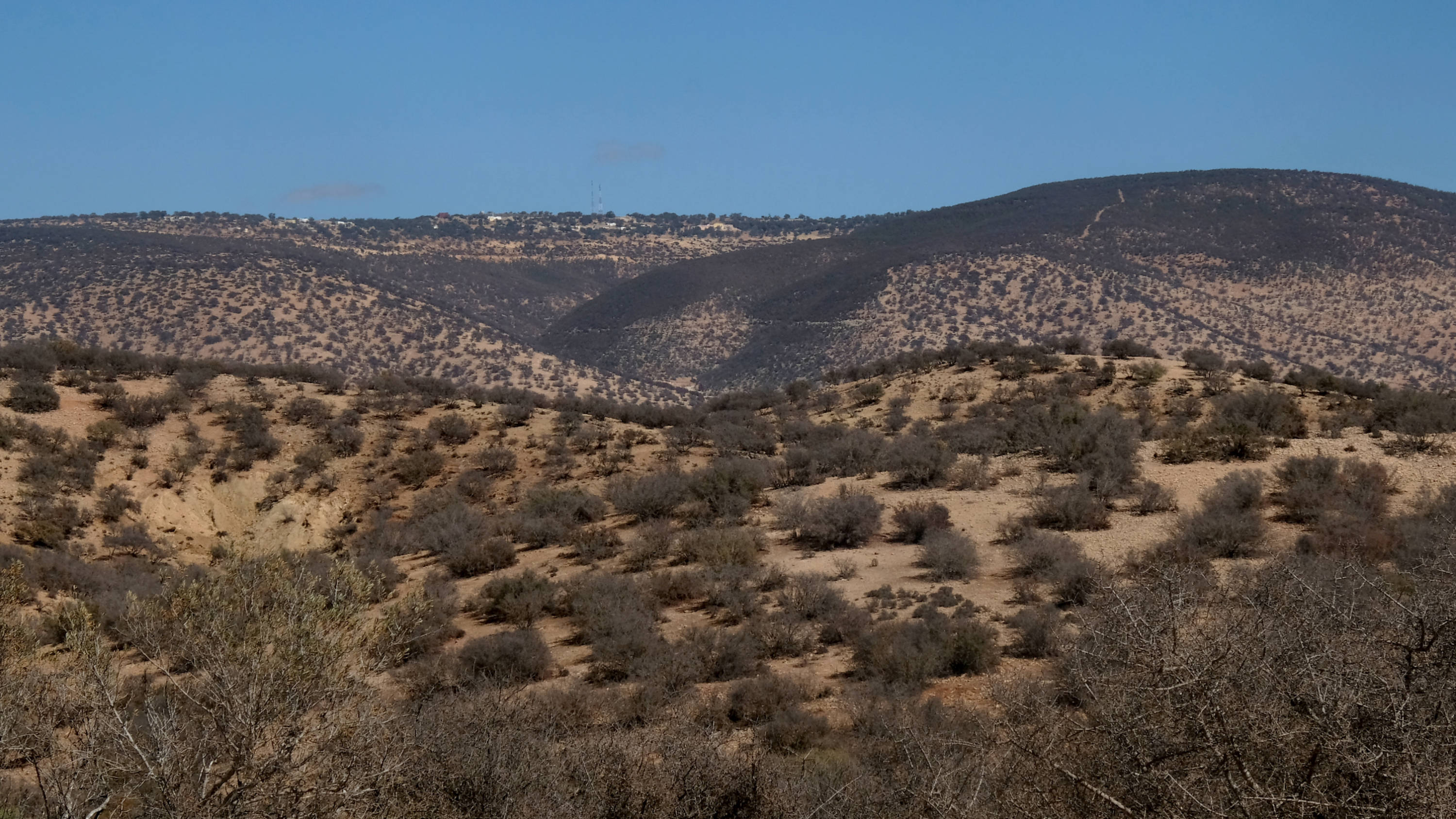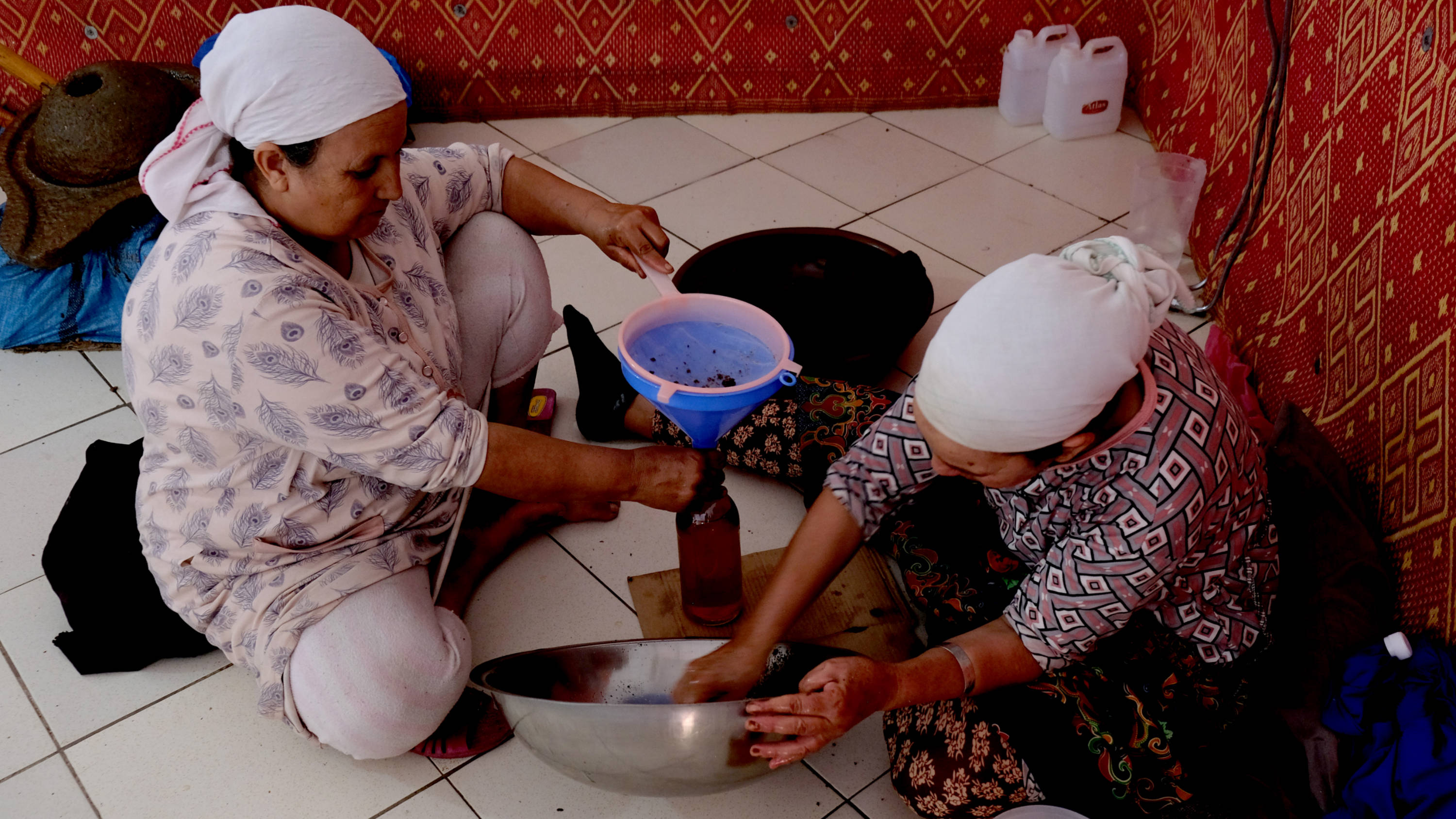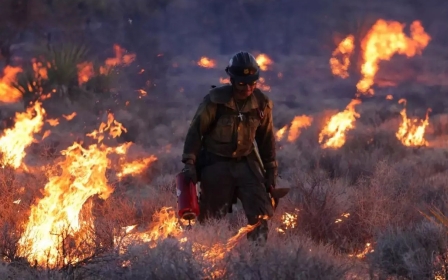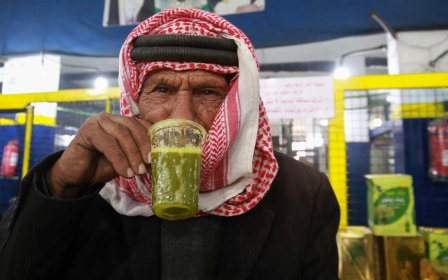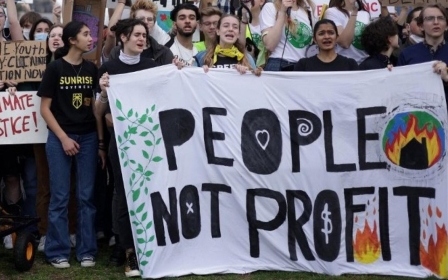Morocco: Climate change threatens Argan ‘liquid gold’ and the women who produce it
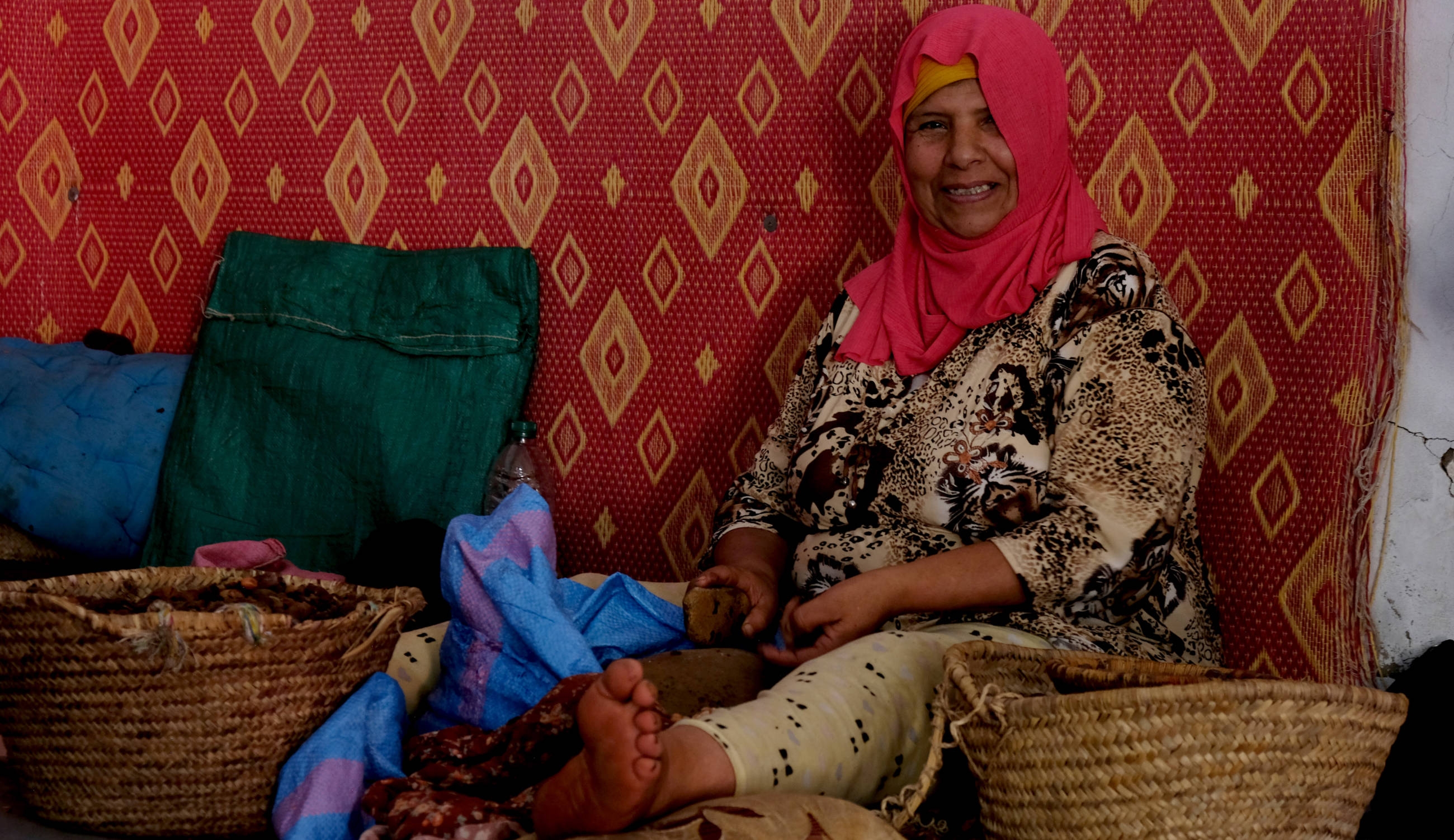
Argan trees have grown in southern Morocco for centuries, but in the last 20 years increased interest from the global beauty industry has transformed the oil into a highly sought-after product - an economic boon for the region that has earned the oil the title of "liquid gold".
However, recent droughts have put new pressure on the argan forests, and, by extension, on the women who depend on it for survival.
The roads from Essaouira to Sidi Ifni, along the southwestern coast, and throughout the Souss-Massa region are lined with argan trees.
The tree used to grow throughout northern Africa, but is now limited to southern Morocco, and is one of the only plants that can survive in the inhospitable climate at the edge of the Sahara.
The argan forest, a Unesco-designated biosphere reserve since 1988, is integral to life in the region, as a last defence against desertification and as a source of food and income for locals, particularly women.
New MEE newsletter: Jerusalem Dispatch
Sign up to get the latest insights and analysis on Israel-Palestine, alongside Turkey Unpacked and other MEE newsletters
But a changing climate is taking its toll, and many of the women who work in argan oil production are already seeing the consequences.
“The last harvests have been smaller, and the fruits are also smaller,” Fadwa el-Mennani, a member of Marjana Cooperative, a women’s argan oil cooperative near Essaouira, told Middle East Eye.
Mennani believes that erratic weather at the start of the year has played a part in these changes.
“It was summer and winter on the same day, the trees can’t cope with the change,” she said.
The preserve of women
Cherif Harrouni, a professor and researcher at the Hassan II Institute of Agronomy and Veterinary Medicine in Agadir, has been studying the argan forest and is concerned by the results of his investigations.
“In 60 years, between 1960 and 2020, temperatures have increased by over two degrees in certain parts of the argan forest and rainfall has decreased by 20 percent, and with manmade deforestation, these figures explain why the productivity of the woodland has decreased,” Harrouni said.
Any reduction in productivity will put severe stress on women’s incomes in the region.
“Argan trees have an important role in the region, especially for women’s employment” said Hafida Boutargua, who was born and raised in a traditional Berber family in the region and runs a small business in the port town Sidi Kaouki sharing her knowledge of the industry.
“Many young people think about starting a business with argan, but it’s becoming more difficult with drought and the rarity of argan fruits.”
Historically, argan production has been the preserve of women like Hafida. For years, women produced the oil in their homes before it was sold by men outside the house.
Wanting to ensure that women retained the profits of their labour, Zoubida Cherrouf, a professor in the science faculty of Mohammed V University, established the first women’s argan oil cooperative in the Souss-Massa region to create social and economic opportunities for the community.
“Crucially these women’s organisations, these cooperatives, had to have a social impact for marginalised women in the region,” said Cherrouf, who specialises in the phytochemistry of medicinal Moroccan plants.
“Ninety-five percent of the women we worked with were illiterate, so creating a training programme was important to help them professionalise. It wasn’t simply economic.”
Changing mindset
Nonetheless, it's the economic opportunities that have given women greater independence and more of a say in family decision-making.
Hafida El Hantati, who oversees oil production at Cooperative Addjigue, has seen this impact first-hand.
“The cooperatives changed mindsets, the women working with us now encourage and prioritise their daughters to continue with school,” she said.
However, Hantati said that due to the current rarity of the fruit, the price of oil has increased in the last three years, which has affected business growth.
“We have lost our major international clients and have stopped exports due to these price rises,” she said.
Argan oil was already one of the world’s most expensive oils, but now the cooperatives with their socio-economic mission are struggling to meet demand at sustainable prices or compete with international businesses with greater capital.
“Many of the women we work with are very remote, this is the only work they have,” Charrouf said. “If there is no money, it will impact the family in many ways, like their ability to eat, their children’s access to education.”
At Cooperative Marjana, staying in business while still providing the space for social growth for women in their region has been difficult.
To make money they have had to increase the prices they charge their clients as they try to find a level that meets both their social and economic goals.
“The social objective is still important, we look for women who really need the work - for example, divorced women, widows - to help improve their situation and realise our socio-economic goals. But now we must find solutions for poor harvests, too,” Mennani explains.
'We have trust in the tree'
Finding these solutions will be difficult without a significant change in the environmental outlook.
The Moroccan government has plans for reforestation in the region, but this won’t resolve the omnipresent issue of water shortages or deforestation in the short term.
“During the last 60 years the water table has changed dramatically, making it extremely difficult for the entire area to cope,” said Harrouni. “Over-pumping of the aquifer means that it goes deeper and deeper and so now the trees, even with deep roots, are deprived of this water source.”
Meanwhile, international demand exacerbates these issues.
'Argan is part of life here, even in the cooperative if a woman leaves, we know her daughter will take her place'
- Fadwa el-Mennani, a member of Marjana Cooperative
“The pressures on the forest keep growing, especially with climate difficulties and increasing export demand - 80 percent of the fruits now go to export,” Charrouf said.
“Very little stays with the organisations that understand both the social and economic importance of the tree.”
Faoued Bat, an agricultural consultant, points out that regional dependency on the argan product can make it harder to protect it.
“Argan is symbolic, it’s the most resistant to the aridity, to the drought, and the people here are dependent on it - they can no longer pay for gas to cook, so they look to the trees for fuel,” Bat told MEE.
“We have to be pragmatic,” he added. “We can help with planting and reforestation, and it is one solution to the problems faced by argan, but there should also be helping to feed animals, for example. Otherwise, people will still allow them to eat the argan tree. It’s a domino effect.”
In short, the argan forest is essential for survival in southern Morocco, and not just in terms of income from marketable products.
“How can I explain it?” Mennani said. “It’s difficult, but it’s a particular relationship between the woman and the tree.
“It’s thanks to this fruit that women can have a normal life, it’s not easy but it’s a particular love that has passed through generations. Argan is part of life here, even in the cooperative if a woman leaves, we know her daughter will take her place.”
Nonetheless, women working with the argan plant are facing numerous intertwined issues. Global demand for the oil remains high, which forces locals to compete with international companies, while at the same time, the productivity of the forest is decreasing, and deforestation continues.
Meanwhile, it may still take years to see the products of the reforestation plans.
Ultimately, the loss of the argan forest to climate change, over-exploitation - or a mix of the two - would be both an environmental disaster and radically impact the lives of the women who are on the front lines of the industry.
What will they do if there’s another poor harvest next year?
“We have trust in the tree,” Mennani said. “We have to hope.”
This article is available in French on Middle East Eye French edition.
Middle East Eye delivers independent and unrivalled coverage and analysis of the Middle East, North Africa and beyond. To learn more about republishing this content and the associated fees, please fill out this form. More about MEE can be found here.


